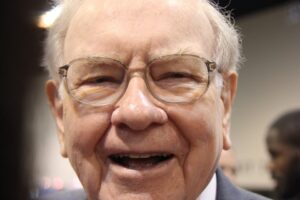1 Historically Cheap Vanguard Index Fund to Buy Before It Soars 40%, According to a Wall Street Analyst


The small-cap Russell 2000 has advanced 10.4% in July, while the large-cap S&P 500 (SNPINDEX: ^GSPC) has essentially traded sideways for the month. The last time the Russell 2000 outperformed the S&P 500 by such a wide margin during any month was February 2000, according to Forbes.
Tom Lee, head of research at Fundstrat Global Advisors, believes that pattern will continue in the coming months. He recently told CNBC the Russell 2000 could rise another 40% by the end of the summer, implying the index could top 3,100 in the not-too-distant future.
His reasoning: Small-cap companies trade at historically cheap valuations relative to large-cap companies. Additionally, the Federal Reserve is expected to cut its benchmark interest rate soon, and lower rates should have a disproportionately positive impact on small-cap companies.
Short-term predictions are prone to inaccuracy because the stock market can behave irrationally when performance is measured in weeks and months. Indeed, Warren Buffett once described short-term market forecasts as “poison.” But Lee has made prescient calls in the past, such as being one of the only Wall Street analysts to predict the 2023 rally in the S&P 500.
Investors should at least consider buying a position in an index fund that tracks the Russell 2000, and the Vanguard Russell 2000 ETF (NASDAQ: VTWO) fits the bill perfectly.
Small-cap stocks are trading at their cheapest level in the 21st century
Small-cap stocks have substantially underperformed large-cap stocks over the last decade. Since July 2014, the Russell 2000 has returned 126%, while the S&P 500 has advanced 232%. As a result, small-cap stocks currently trade at their steepest discount to large-cap stocks in decades.
Michael Cembalest at JPMorgan Chase recently wrote, “Small-cap stocks are at the cheapest levels in the 21st century with potential market and political catalysts in their favor.” He also explained how small-cap stocks wound up in this position. Companies in the Russell 2000 are much less profitable and far more exposed to elevated interest rates than companies in the S&P 500.
However, futures pricing data suggests the Federal Reserve could cut its benchmark interest rate by 25 basis points three times in 2024, and that policymakers will effect six 25-basis-point cuts before the end of July 2025. Goldman Sachs analysts in February wrote, “In the U.S., 30% of Russell 2000 debt is financed on a floating-rate basis, compared to only 6% of the S&P 500. This means that small-caps should start to feel the benefits of lower rates faster than large caps.”
Additionally, Republican presidential nominee Donald Trump has promised to implement new and rather aggressive tariffs on imported goods. Certain economist believe such policy would make inflation worse and reduce the typical American family’s purchasing power by 2.7%. However, tariffs typically hurt large-cap companies more than small-cap companies, so the Russell 2000 could outperform the S&P 500 due to a roundabout political catalyst.
To be clear, that does not necessarily mean the Russell 2000 will be a profitable investment. Certain analysts have warned that higher tariffs could cause the stock market to decline. The Russell 2000 may simply decline less sharply than the S&P 500. Additionally, political catalysts may play a small role in the near-term, simply because investors may react to the results of the presidential election. But the actual economic impact of tariffs won’t show up until those tariffs are implemented.
What investors should know about the Vanguard Russell 2000 ETF
The Vanguard Russell 2000 ETF tracks the Russell 2000, which itself measures the performance of about 2,000 small-cap stocks. For context, the median market capitalization for companies in the Russell 2000 and S&P 500 is approximately $900 million and $35 billion, respectively.
Another important difference is stock market sector allocation. The Russell 2000 is most heavily weighted toward the industrials (19%), healthcare (15%), and financials (15%) sectors, while the S&P 500 is most heavily weighted toward the information technology (32%), financials (12%) and healthcare (12%) sectors.
The five largest positions in the Vanguard Russell 2000 ETF are listed by weight below.
-
Insmed: 0.4%
-
FTAI Aviation: 0.4%
-
Abercrombie & Fitch: 0.4%
-
Fabrinet: 0.4%
-
Sprouts Farmers Market
The Vanguard Russell 2000 ETF bears a reasonable expense ratio of 0.1%, meaning investors will pay $1 annually for every $1,000 invested in the fund.
Here’s the bottom line: Imminent interest rate cuts and historically cheap valuations make the Russell 2000 look particularly attractive right now. But investors should remember Russell 2000 companies are much less profitable than S&P 500 companies, by which I mean free cash flow margins are lower and more companies have negative earnings. So there is some rhyme and reason to the historically cheap valuations.
Personally, I think it makes sense for patient investors to buy a few shares of the Vanguard Russell 2000 ETF right now, simply because small-cap stocks have several catalysts working in their favor. However, I would not commit more than 5% to 10% of my portfolio to a Russell 2000 index fund. The S&P 500 has simply performed too well for too long for me to feel comfortable with that decision.
Should you invest $1,000 in Vanguard Russell 2000 ETF right now?
Before you buy stock in Vanguard Russell 2000 ETF, consider this:
The Motley Fool Stock Advisor analyst team just identified what they believe are the 10 best stocks for investors to buy now… and Vanguard Russell 2000 ETF wasn’t one of them. The 10 stocks that made the cut could produce monster returns in the coming years.
Consider when Nvidia made this list on April 15, 2005… if you invested $1,000 at the time of our recommendation, you’d have $692,784!*
Stock Advisor provides investors with an easy-to-follow blueprint for success, including guidance on building a portfolio, regular updates from analysts, and two new stock picks each month. The Stock Advisor service has more than quadrupled the return of S&P 500 since 2002*.
*Stock Advisor returns as of July 22, 2024
JPMorgan Chase is an advertising partner of The Ascent, a Motley Fool company. Trevor Jennewine has no position in any of the stocks mentioned. The Motley Fool has positions in and recommends Goldman Sachs Group and JPMorgan Chase. The Motley Fool recommends Sprouts Farmers Market. The Motley Fool has a disclosure policy.
1 Historically Cheap Vanguard Index Fund to Buy Before It Soars 40%, According to a Wall Street Analyst was originally published by The Motley Fool








